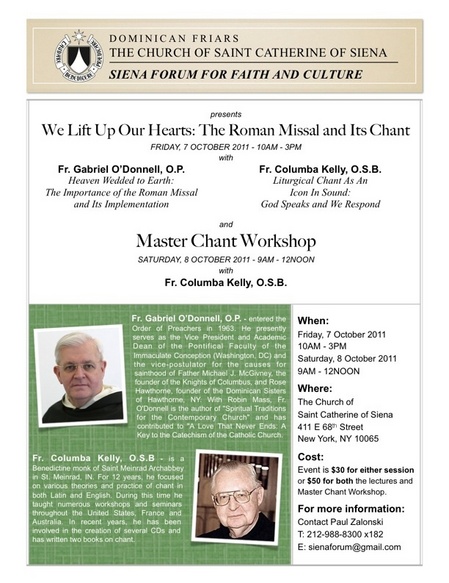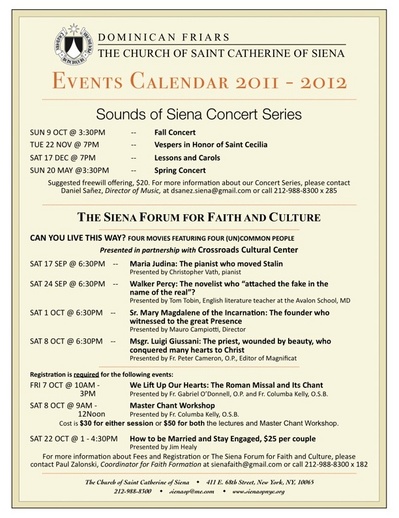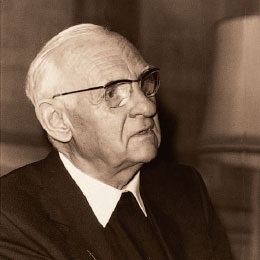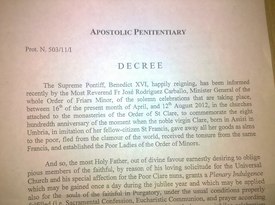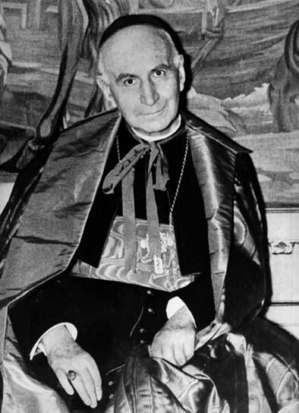 There’s a journalist, intellectual, politician and a cardinal whose sanctity is being studied: Ángel Herrera Oria.
There’s a journalist, intellectual, politician and a cardinal whose sanctity is being studied: Ángel Herrera Oria.
a small garden with a punch
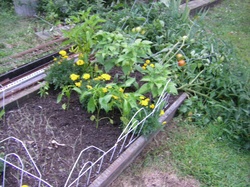 Father Giussani spoke of sacrifice in our context as including what we do with our spare time. When we have time to spare, do we read, do we pray, do we spend quality time with family, friends, or our beloved, do we watch hours of TV, or, do we help the poor and needy? How we spend our free time reveals who we are as persons. How we use time speaks of our values and how we flourish.
Father Giussani spoke of sacrifice in our context as including what we do with our spare time. When we have time to spare, do we read, do we pray, do we spend quality time with family, friends, or our beloved, do we watch hours of TV, or, do we help the poor and needy? How we spend our free time reveals who we are as persons. How we use time speaks of our values and how we flourish.
 Today, the leaks replaced the cucumbers and the squash plants are growing daily.
Today, the leaks replaced the cucumbers and the squash plants are growing daily.
Silence is the environmental condition to listen to God

Image via Wikipedia
Continue reading Silence is the environmental condition to listen to God
Siena Forum for Faith and Culture to host seminar on liturgy and chant
Saint Maximus the Confessor
Siena Forum for Faith and Culture announces Fall events
The Assumption (Dormition) of the Blessed Virgin Mary – a period of fast
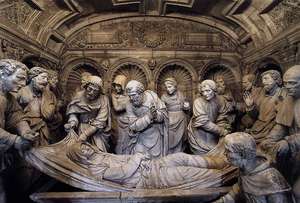 August 1 through 14 is a period of fasting in the
August 1 through 14 is a period of fasting in the
Byzantine churches in preparation for the feast of the Dormition of the
Theotokos (Assumption) on August 15.
Theotokos, as the ever-blessed and immaculate Mother of our God. More honorable
than the cherubim, and by far more glorious than the seraphim, ever a virgin, you
gave birth to God the Word; O true Theotokos, we magnify you!
Hans Urs von Balthasar’s 106th birthday
Fr Z under attack?
I was reading Fr Tim Finigan’s blog today, The hermeneutic of continuity, and was startled to read his post “Fr Z under attack.” Apparently Dr. Phyllis Zagano, professor of Religion at Hofstra University, doesn’t care for Fr Z’s ecclesiology and liturgical theology. Actually, it’s not Fr Z she has the problem with, it is the Church. But since she’s can’t get at that in manageable ways, she’s going after a prominent priest-writer. Why does she really care about Fr Z???
The controversy is based on ruffled feathers: Dr Zagano and much of the NC Reporter crowd doesn’t like to be scrutinized by those “who think with the Church.” It seems to me that this is another example of the mentality where “authority (and obedience) is for other people”; remember, this way of judging things isn’t really Catholic. The same doesn’t accept fraternal correction or live in a spirit of obedience to the Holy Mother the Church (who might just know more than a mere individual expositor of religion). Clearly, this is a case of scratch a liberal find a fascist. In world where adults are expected to be mature, trying to dig up dirt so as incite scandal among the faithful has no place in the Church. Perhaps, it seems to me, that Dr Zagano has not really learned much from all the work she’s done with the central spiritualities of the Church.
Saint Clare of Assisi: a year to receive an indulgence
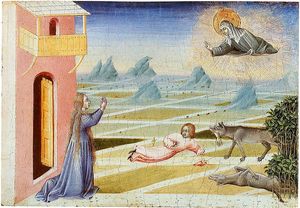 Today we observe the feast day of one the brilliant gems in the crown of Christ the King, Saint Clare of Assisi.
Today we observe the feast day of one the brilliant gems in the crown of Christ the King, Saint Clare of Assisi.
Clare, as you know, is the close companion to the great saint Francis of Assisi, who some have called the “other Francis” because of singular vision of living with Christ poor. In time, Clare founded a group of “poor ladies” living together following the Rule written by Clare for God’s greater glory in enclosed life. First known as the Order of San Damiano, The Poor Clares as they have been known, live a life of joyous poverty in imitation of Christ. Clare’s Rule was an extraordinary act of confidence since the establishment only accepted the Rule of St Benedict for monastic living.
Saint Clare was born on July 16, 1194 and died at the age of 59 on August 11, 1253. She was canonized by Pope Alexander IV on September 26, 1255. Our Saint is the patron of those with diseases of the eye, communication systems, goldsmiths and good weather. Perhaps brides and builders should pay more attention to Saint Clare!
For the 800th anniversary of Saint Clare’s birth holy Mother Church is offering the faithful –with the usual conditions– an indulgence.
The four minister generals of the large Franciscans groups wrote the Poor Sisters of Saint Clare a letter for the anniversary where they say they rely on the continued witness of the daughters of Clare today in the monastic life. The friars propose a consolidation that maintains a “healthy and necessary complementarity” among the friars and sisters.
Here’s the letter: Letter to the Poor Clares.pdf
You may want to read an excellent t book on Saint Clare edited and translated by Capuchin Father Regis J. Armstrong, The Lady: Clare of Assisi: Early Documents (NY: New City Press, 2006).

